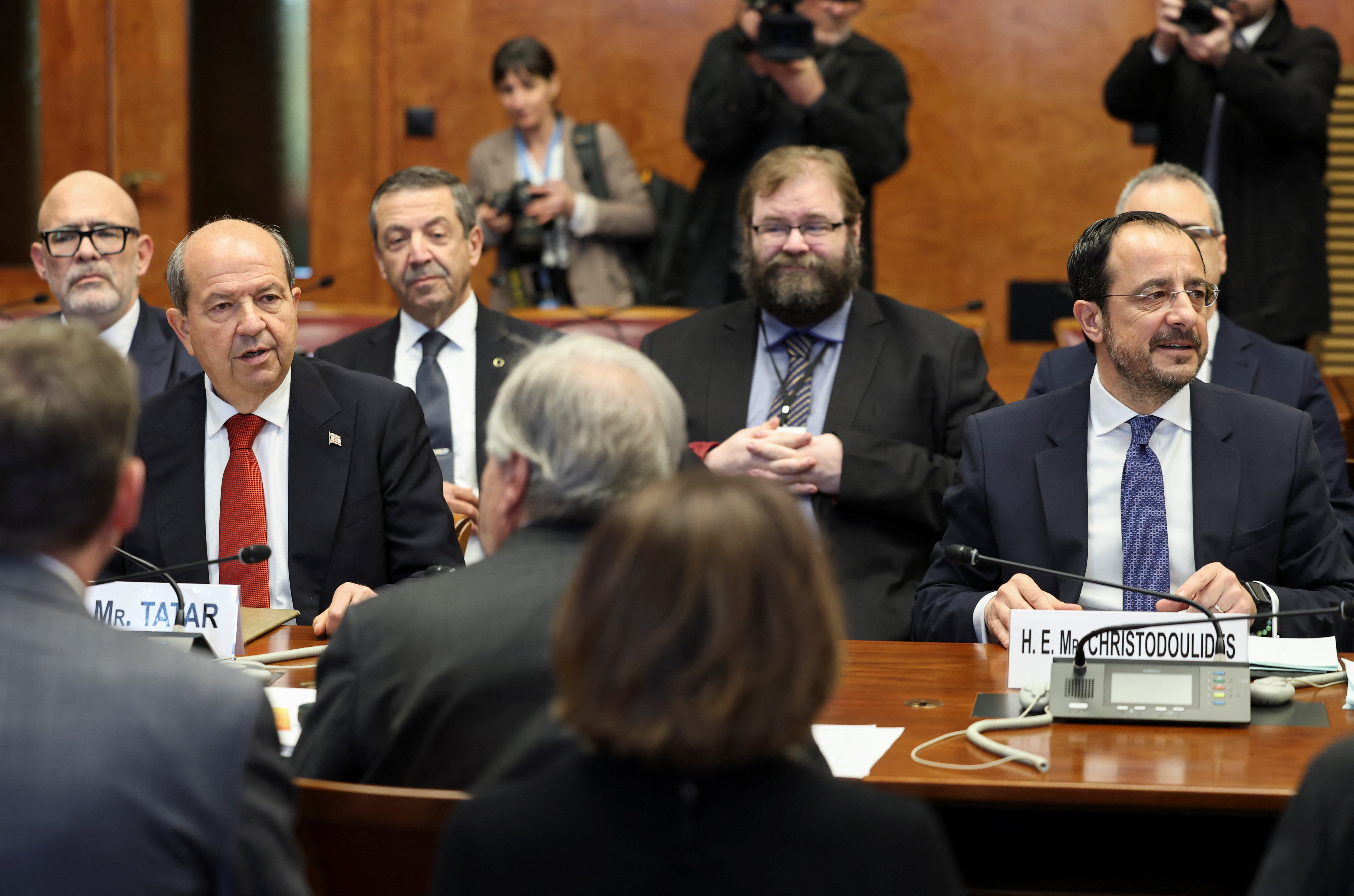There was good news from Geneva on Tuesday afternoon. A new, admittedly low-key process was set in motion, with the sides agreeing to work on specific confidence building measures before meeting again at the end of July. Before then, the UN Secretary-General Antonio Guterres will appoint a special envoy who will presumably help the process move along.
It was a smart way of starting a new process, with neither side being asked to cross the respective red lines it had set. This would not be a resumption of talks, so Turkish Cypriot leader Ersin Tatar did not have to insist on acceptance of separate sovereignty and the three ‘Ds’. President Nikos Christodoulides’ conditions about talks within the agreed framework and from the point they were left off in 2017, also became irrelevant.
Under the circumstances, after eight years of deadlock this was the best possible outcome. After the meeting on Tuesday afternoon, Guterres said: “It is important to note that even before Crans Montana, and we are talking about 2017 until now, there was no real progress on any aspect and today there was meaningful progress.” The bar had not been placed very high, but even a little progress, after eight years of none, is something.
The Secretary-General will also appoint a personal envoy to ensure the process is moving along and to prepare the July meeting. Tatar said that the name of Maria Angela Holguin was mentioned as envoy and her appointment would make sense as she is up to speed on the Cyprus problem, having spent six months as envoy last year.
Six confidence-building measures were agreed in Geneva. There will be the opening of four crossing points, with each side proposing two, demining, the establishment of a technical committee on youth, initiatives on the environment and climate change, photovoltaics in the buffer zone and restoration of cemeteries. The sides, quite clearly, had taken a constructive approach, a fact noted by Guterres who said both showed “a clear commitment to making progress and continuing dialogue.”
The truth is that such a commitment was not evident for years, even though what has been agreed is low-level dialogue that could achieve the modest targets set by the Secretary-General. The resumption of talks, quite rightly, has been put aside for now, with the UN focusing on establishing cooperation between the two sides.
Whether the sides will actually open four new crossings, set up a solar park in the buffer zone and take joint action on climate change remains to be seen. But only when these decisions are implemented will we be able to say that the Geneva meeting was a success. The agreed process must now be set in motion.






Click here to change your cookie preferences